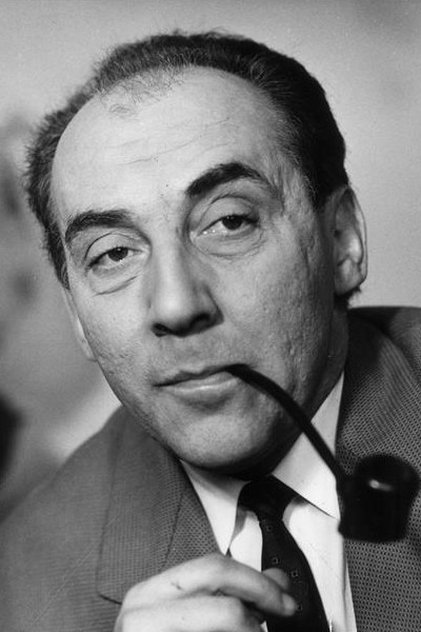
Miloš Kopecký
- Date of Birth: 1922-08-22
- Date of Death: 1996-02-16
- Place of Birth: Prague, Czechoslovakia [now Czech Republic]
Biography
Miloš Kopecký was a Czech actor, active mainly in the second half of the 20th century. He was born into the family of craftsmen, Kopecký was involved with music and theater throughout his entire ... Miloš Kopecký was a Czech actor, active mainly in the second half of the 20th century. He was born into the family of craftsmen, Kopecký was involved with music and theater throughout his entire life. Starting on stage in 1939, as a member of an amateur elocution group, Kopecký performed with numerous young artists during the German occupation of then Czechoslovakia. Near the end of World War II, Kopecký’s mother was murdered at the Auschwitz concentration camp for her Jewish heritage, while Miloš was interned in the labor camp Bystřice u Benešova. He would later credit these experiences as the cause for his struggle with Bipolar Disorder, then known as Manic-Depressive Disease. Following the liberation, Kopecký began acting in the avant-garde studio Větrník in 1945, before joining the Vinohrady Theatre in 1965 at the behest of then-director František Pavlíček. Kopecký continued to make guest appearances at theaters throughout Prague, working with many notable actors of his era before appearing on film and television. His first minor role was in the historic film Jan Roháč z Dubé (1947), but he quickly graduated to more important characters and gradually became one of the most popular actors in Czechoslovakia. He may be best known today as Dr. Štrosmajer in the Czech television series Nemocnice na kraji města. During his career he played mainly negative roles of traitors, lechers, and villain, which he famously depicted with elegance and esprit. In the mid-1980s Kopecký acted in a politically biased documentary film about emigrants, and also presented very critical speech against current communist régimes in May, 1987, at the Fourth Congress of Dramatic Artists. He was married five times, at one point to Czech actress Stella Zázvorková.

To byla svatba, strýčku
Music, Comedy • 1977 February

Trik aneb Jak dámu okouzlit aneb Jak manžela oblafnout
Music, Comedy • 1964 January

Prášilové
• 1974 April

Mistr Pleticha a pastýř Jehňátko
Family, Fantasy • 1988 January

Napravení Jima Valentina
Comedy, Music • 1964 September

Labyrint
• 1991 November

Píseň o silnici
• 1953 January

Uctivá poklona, pane Kohn
Comedy • 1992 January

Pražská romance
Music, Comedy • 1969 January

Tisíc pohledů za kulisy
Music • 1961 January